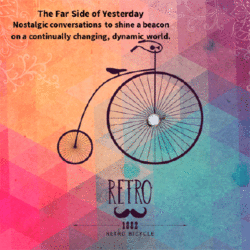The Agatha Christie detective Hercules Poirot boasts remarkable deductive skills because he can only see the world as it is supposed to be. He is immediately drawn to anything that deviates from the expected. The wonder of our ordinary minds is that we can see the world as it isn’t. Although we live in the present, we can remember the past and imagine the future. We are able to visualize being someone different living in an alien place. Imagination offers a chance for enlightenment.
However, many of us stubbornly continue to describe the world advancing around us as if we gazed through unmarred, unbiased, transparent lenses with 20/20 vision. In truth, deeply rooted bias and prejudices shape our perceptions and responses. Words, assumptions, images, opinions and fantasies seep unfiltered into our conscience tumbling into each other, bouncing off our memory cells and settling into the crevices of our sensibilities.
Our particular biases filter new information, ideas and experiences based on what we already know. Thus, we don’t need to start anew on everything that we do and can assume that something is true without proof. Over time, we develop an understanding of right and wrong.
A bias becomes dangerous if it unreasonably shades our perceptions and causes us to prejudge others.
It goes awry when we fear we are wrong. Being wrong hints there may be something wrong with us. The antidote is to always be right so we can feel smart, accountable, and secure. But be wary of your highly prized internal sense of rightness. It isn’t a trustworthy guide to the tangible real time world. We only pretend it is. This little white lie allows us suppress the chance that we could be wrong and encourages us to commit mindless and senseless acts of conceit.
The catch is that not everybody agrees with our brilliant perceptions. That can be quite a conundrum. How can you be right if others disagree?
Well, perhaps they don’t have access to all the information. Magnanimously, we share what we know with them, shining a light into the darkness so they can find their way to the truth. And if they still miss the point and continue to argue, we conclude they don’t have the brain capacity to understand. Idiots all.
If it turns out that their IQ is higher than ours yet they still dispute that we are correct, we might assume they have a hidden agenda and are purposefully misrepresenting the truth – a conspiracy is afoot. This connection to our own rightness thwarts our ability to correct mistakes, right injustices or reverse inequities.
“Of course, I may be wrong. But I don’t think so,” is probably the best concession we allow ourself.
We reject the innate capacity of humans to mess up. We forget that those who tell us only what we want to hear, do so for their benefit, not ours. Those who always agree with our every utterance, cannot provide us with anything of real value. Those who give us everything we want without expecting anything in return, can end up making us powerless and overly dependent.
Conversely, those who challenge us, help us to grow stronger. Those who respect us enough to give their true opinion, provide valuable feedback.
If we choose to reject others because we do not know or understand their inner worth, we miss out on the possibility of finding a friend, companion, colleague or perhaps a soul mate. And we in turn may become bitter, angry and cynical. We lose our joy and zest for life.
Better to seek out the honor, courage, beauty, dignity and the love others embody. These traits are sometimes expressed openly but more often are hidden, tightly bound and protectively held, sometimes simply out of shyness, uncertainty, indecision, or anxiety.
It takes commitment and sacrifices to move forward, forgive ourselves and reconcile with others that may have hurt or offended us. This may be our shakiest step since that first baby step. Although that endeavor often landed us on our butt, perseverance and encouragement got us up and moving.
Tomorrow is a concept but we stand eye to eye with today. Choose today to reevaluate perspectives, shake off clinging prejudices and take meaningful action. Accepting each other’s uniqueness, taking time to understand and value the differences in every person builds relationships. That is a gift without equal that will keep showering us with amazing possibilities.
As we age, the time to bring meaning to our life grows shorter. Don’t wait too long to reject the fictitious self you wear like a beloved frock for all to see. Loose the lives you have been afraid to live. Let go of envy, anger and despair. Focus, not with being right, but with how you can make it better.
There are times when we are powerless to prevent injustice, but there must never be a time we fail to protest. (Elie Wiesel, Holocaust survivor and Nobel Laureate.)

